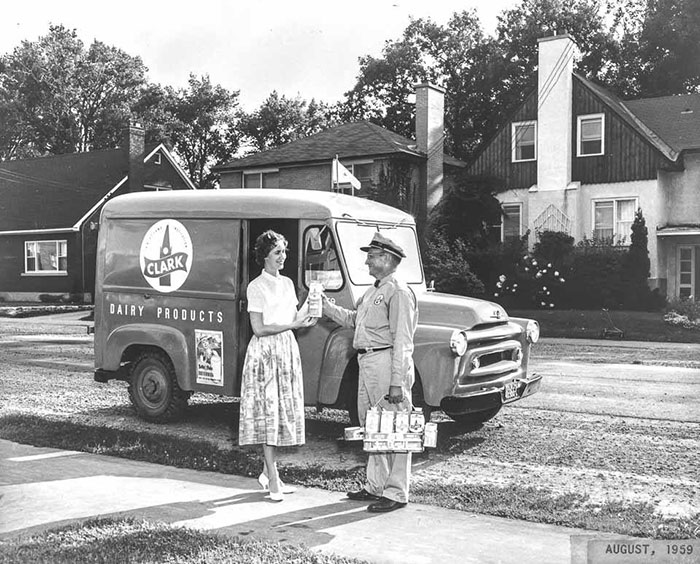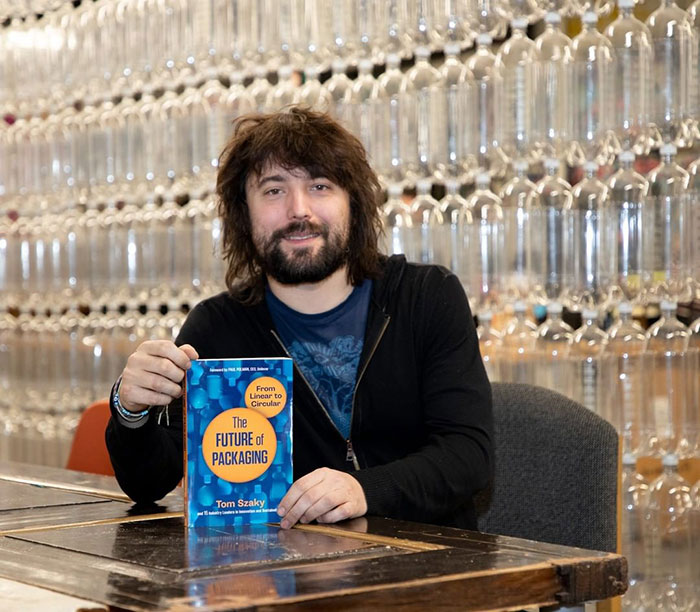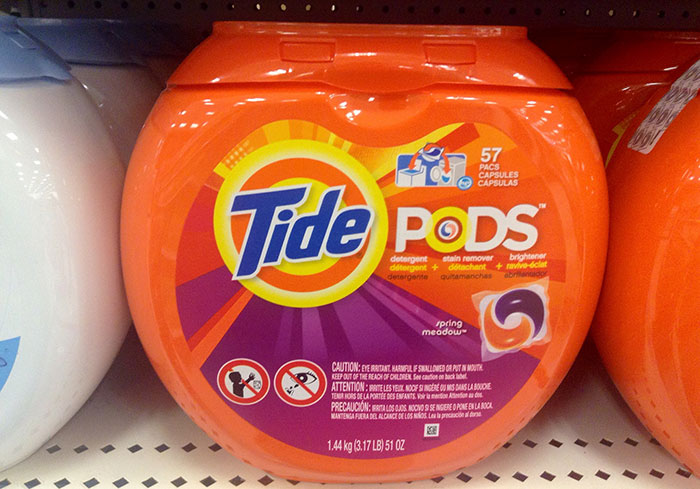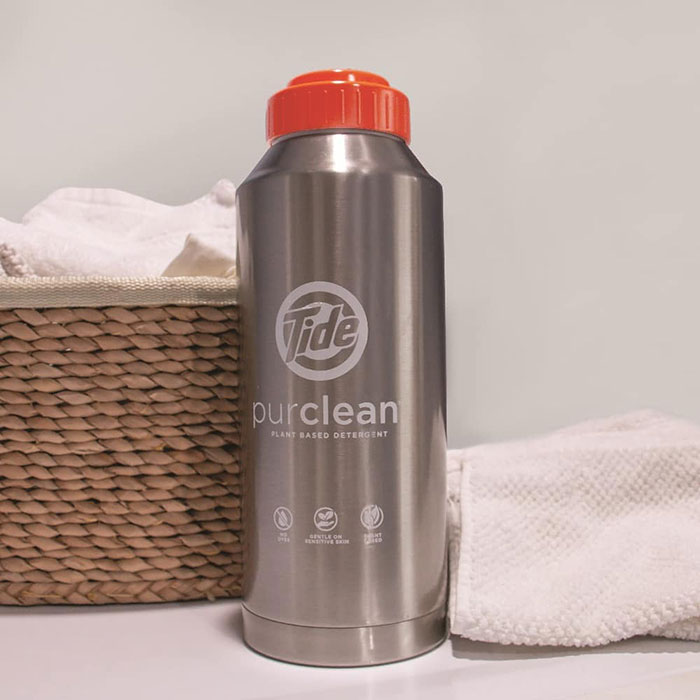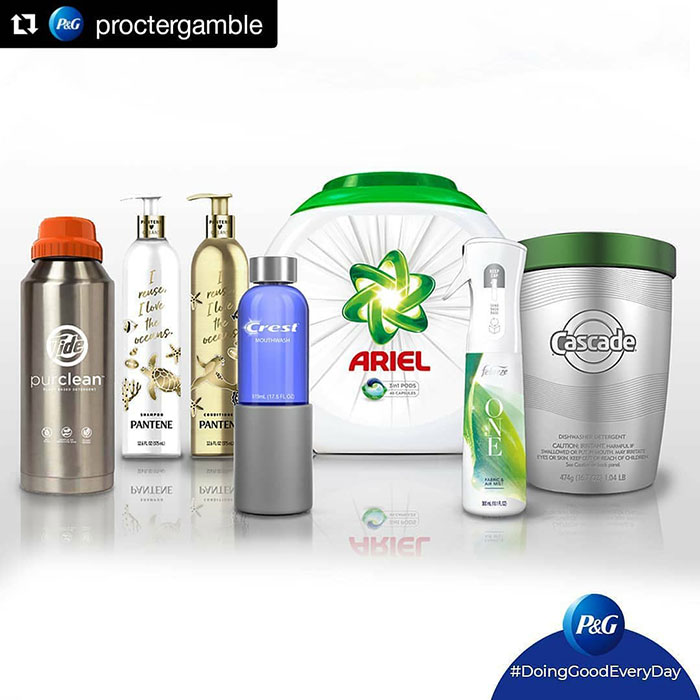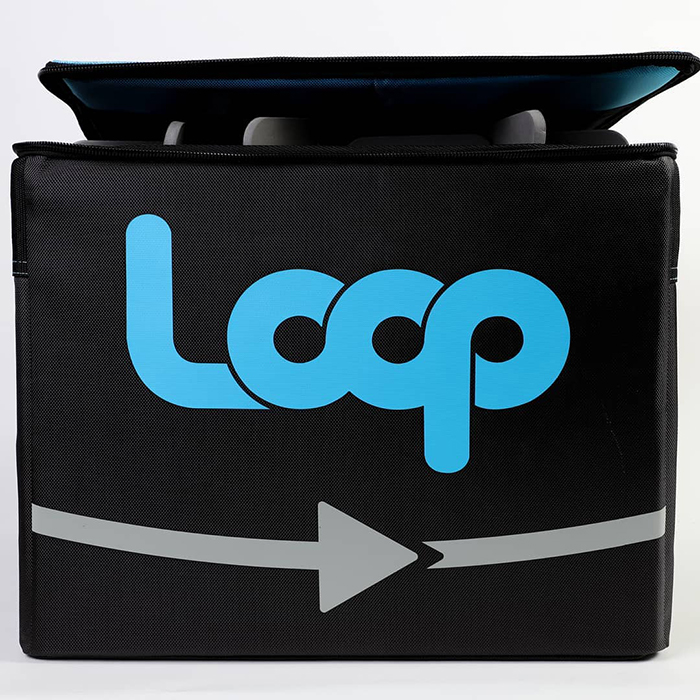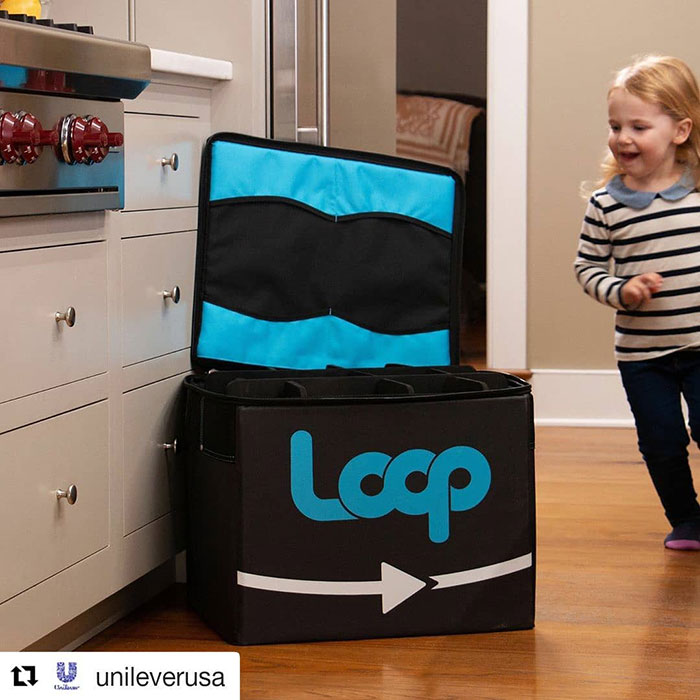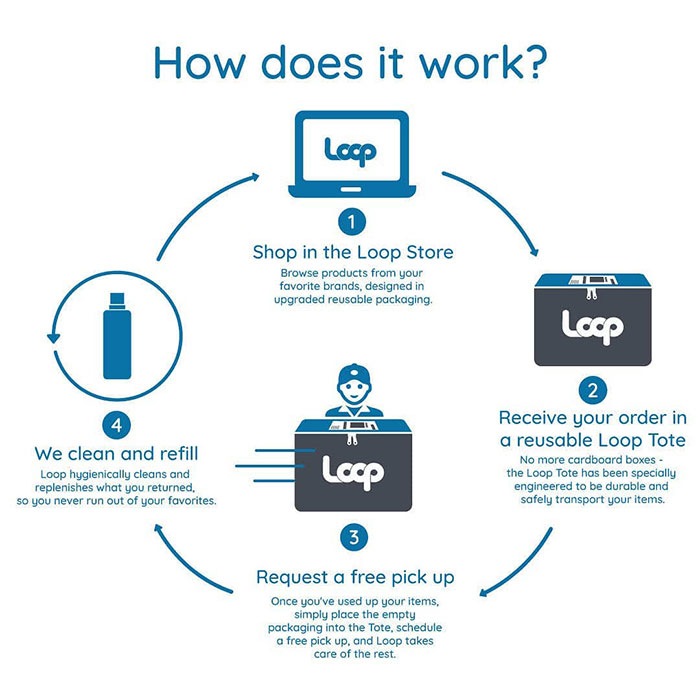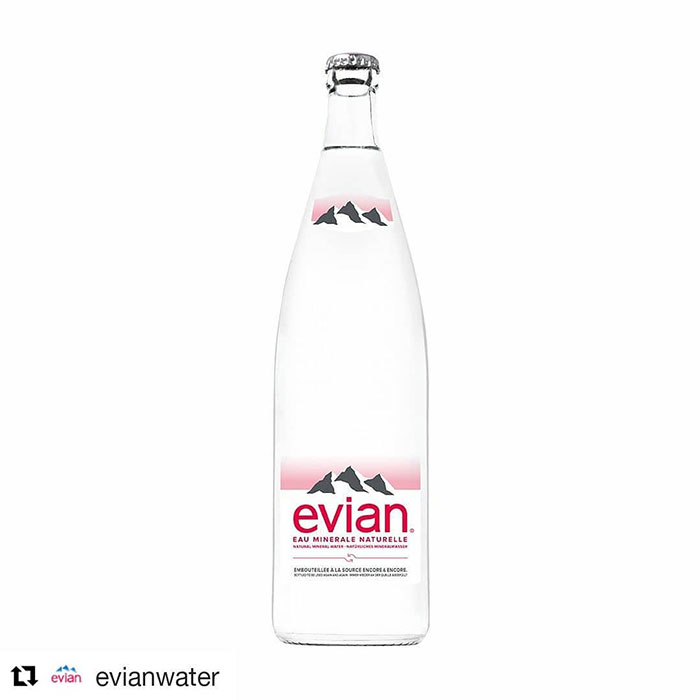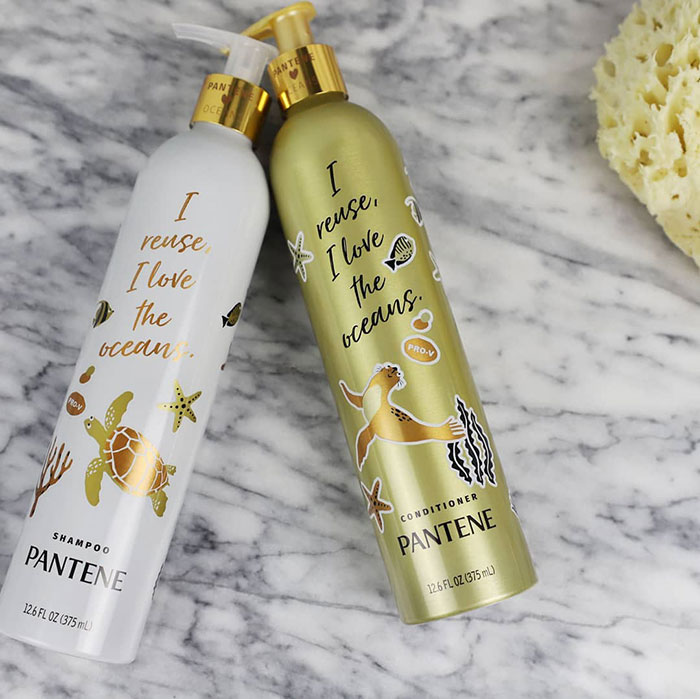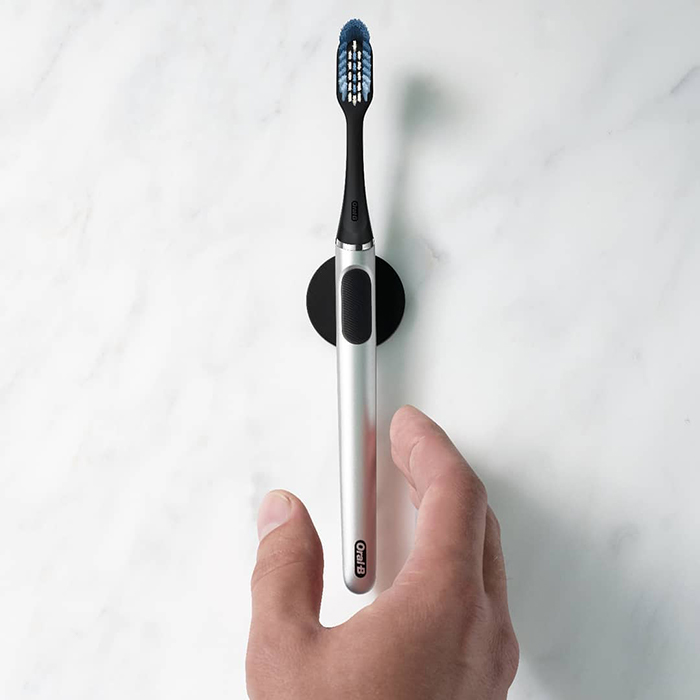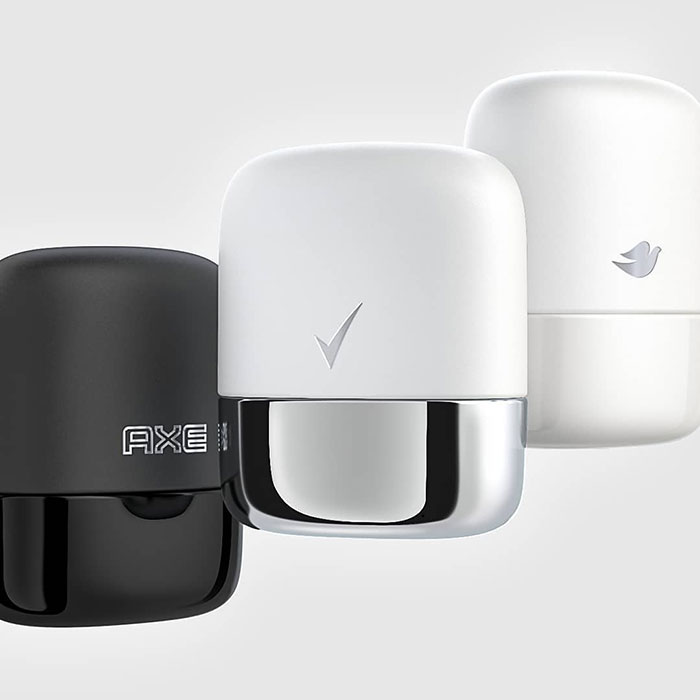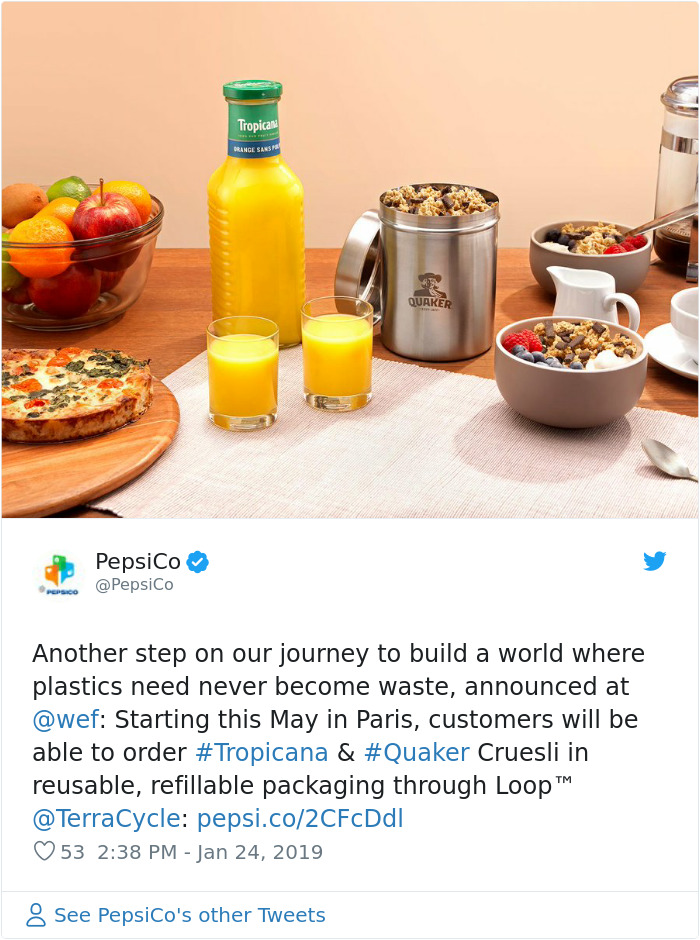The Containers for Your Most Basic Household Products Are About to Look a Lot Different, Thanks to This Company
TerraCycle
pepsico
coca cola
Mars
tom szaky
Nestle
Unilever
Include USA
UPS
Procter & Gamble
Carrefour
Loop
Clorox
The Loop system, created by New Jersey-based Terracycle, could change the way people consume goods.
By Kevin J. RyanStaff writer, Inc.@wheresKR

CREDIT: Terracycle
Take a look at your pantry or maybe the cupboard where you keep the cleaning supplies. Chances are, most of the household products you buy are packaged in plastic. About one-third of the world's plastic winds up in the ocean, according to the World Economic Forum--that amounts to a garbage truck's worth of plastic dumped into the sea every minute. Meanwhile, only 14 percent of it is collected to be recycled.
A New Jersey company called Terracycle thinks it's time for a better, more radical solution: zero waste. Under the company's Loop system, which launches in April, containers are designed to be reused. As in: You'll be using the same bottle that someone--or a lot of people--have already used.
The system has been years in the making for Terracycle, which started in the college dorm room of a then-19-year-old entrepreneur named Tom Szaky. And it's no small stunt. Unilever, Procter & Gamble, Clorox, Nestle, Mars, Coca-Cola, and PepsiCo all redesigned their packaging to participate in a pilot program. Products from orange juice and mayonnaise to hand soap and detergent will all come in multi-use containers. Even toothbrushes will be reusable, with the head detaching from the lower half; new sticks of deodorant will be placed back into recommissioned bases.
Szaky says the time is finally right for consumers to embrace a new way of consuming products that doesn't generate waste. "I've been doing this waste thing for 16 years, and people have always been aware and in agreement that garbage is a problem," Szaky says. "But in the past 12 months the world has awoken in a very, very big way. People are looking for alternatives."
Last year, for example, more than 250 companies ranging from PepsiCo to H&M pledged to cut back on their use of plastic, including making all their packaging recyclable, reusable, or compostable by 2025.
The Loop program launches in Paris on May 14 and in New York, New Jersey, and Pennsylvania on May 21. In those states, customers will buy a product online through the Loop Store and pay a deposit for the container, usually between 25 cents and $10. The goods get shipped in a reusable tote bag. When the containers are empty, UPS picks them up in their original shipping tote. (Unlike with regular recycling, there's no cleaning necessary on the consumer's end.) The containers go to a plant where they're cleaned, sterilized, and refilled, and the whole process begins again.
"It has the same convenience of disposability," Szaky says. "This is how we move packaging and products from being disposable and owned by the consumer to being durable and borrowed by the consumer. Packaging becomes a service."
In France, one of Europe's largest retail chains, Carrefour, will participate in the program. The first U.S. retailer will be announced soon, and Szaky says it will be a company of similar scale. Eventually, the plan is for customers to be able to buy products and drop off the containers in stores.
Some of the products will cost 10 to 15 percent more than usual in addition to the deposit, but many will be on par with their regular prices. Customers get their deposit back once the containers are returned, and they aren't responsible for wear and tear.
This initial pilot run will determine both consumers' appetites for this kind of system as well as how feasible it is and whether the containers last as long as expected. The plan is to roll Loop out in more markets by the end of the year.

CREDIT: Terracycle
Szaky thinks customers won't merely get used to the system--he suspects they'll appreciate the benefits that come with containers that are built to last 100 uses or more. The Clorox wipes receptacle, for example, looks nicer and keeps wipes wet longer. The Haagen-Dazs container has two walls of stainless steel that keep ice cream frozen for hours. "It's such a departure from a coated paper box," he says.
Szaky co-founded Terracycle while a student at Princeton in 2002. Its initial product was fertilizer made from worm waste and packaged in reused soda bottles. The startup won several competitions and soon muscled its way into retail stores like Home Depot.
Today, the Trenton-based company has 260 employees and several revenue models, all built around principles of extreme sustainability. One arm of the company, which operates in 21 countries, entails recycling products that usually get sent to landfills. Few items are off limits: Used chewing gum gets turned into plastic; soiled diapers are sterilized, separated into their fluffy and plastic parts, and turned into new products; cigarette butts can be turned into park benches or, appropriately, ashtrays.
Those programs, through which Terracycle partners with companies like P&G, helped lay the foundation for the Loop system. "These relationships took time," Szaky says. "We've been working with these companies for a very long time, for 15 years in some cases. So we've built up a lot of credibility."
Terracycle isn't the first company to attempt refillable packaging. Some brands, like makeup firm Kjaer Weis, have rolled out their own products in reusable containers. Food cooperatives like Brooklyn's The Wally Shop deliver groceries in reusable containers and bags. But the Loop system appears to be the largest of its kind.
Time will tell how widely it's adopted. "In a perfect world, I love it," says Mitch Hedlund, executive director of Recycle Across America, a nonprofit with the goal of revamping U.S. recycling programs. "Whether it will scale up to the impact they're looking for--that's the biggest question." Hedlund fears that Loop risks becoming a niche program for passionate environmentalists--those living in what she calls the "green bubble."
"The reality is there's a huge percentage of the population who are going to the store looking for convenience and the best deal," she says. "If it can reach critical mass, then I think it's a great solution."
For its part, Terracycle pulled in nearly $33 million in revenue in 2018, up from $24 million the previous year. Szaky expects that number to jump again this year thanks to Loop. The company appeared on Inc.'s list of the fastest-growing private companies four consecutive years from 2009 to 2012.
Talking numbers like these reminds Szaky of the company's earliest days, around the time he took an economics class in college. The entrepreneur recalls being taught the Friedman theory that the sole purpose of a company is to deliver profit to shareholders.
"That just took the wind out of my sails," he says. "Yes, you want your company to be profitable so you know it has a future. But I think the purpose of businesses is what it does--what service it provides, what product it makes, how it helps people, society, planet. I wanted to create a business that puts those things first."

